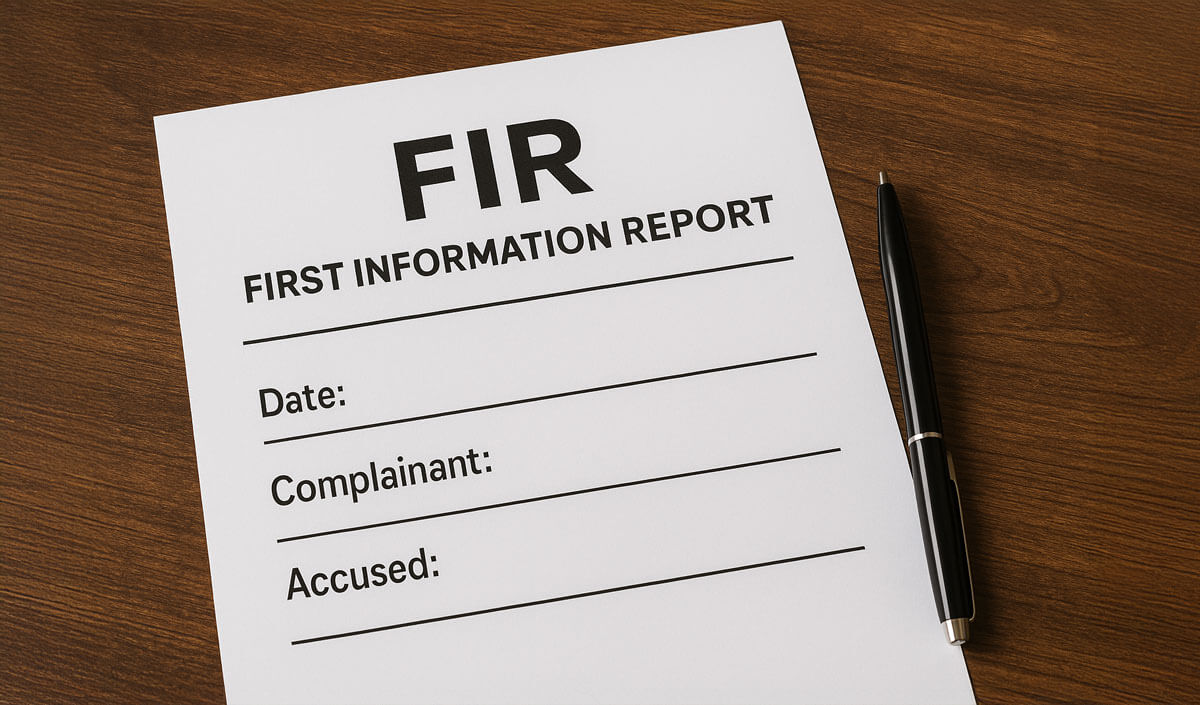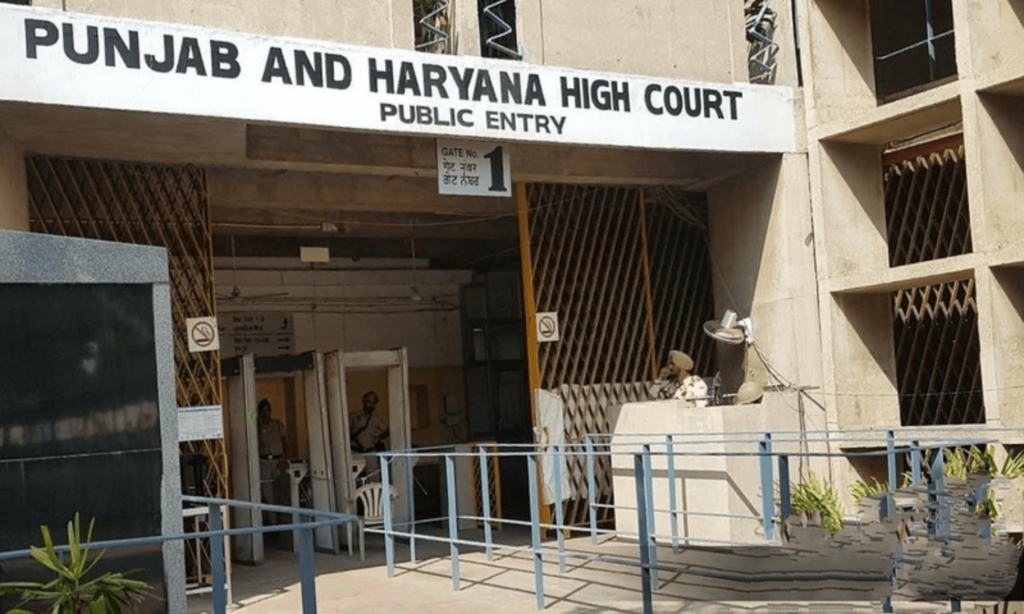
The Indian criminal justice system is a cornerstone of a democratic society, designed to protect citizens and uphold the rule of law. However, it is not immune to misuse, particularly through the filing of frivolous or malicious First Information Reports (FIRs). An FIR, the initial step in a criminal proceeding, can sometimes be weaponized to harass, intimidate, or settle personal scores. To address such abuses, the High Courts are vested with inherent powers under Section 482 of the Code of Criminal Procedure (CrPC), now replaced by Section 528 of the Bharatiya Nagarik Suraksha Sanhita (BNSS), 2023, to quash baseless FIRs and prevent the abuse of judicial processes. This article aims to educate the general public and legal fraternity about the concept of an FIR, the circumstances under which it can be quashed, and the rights available to individuals facing unwarranted criminal proceedings. Drawing on landmark Supreme Court judgments, including Abhishek v. State of Madhya Pradesh, Kailashben Mahendrabhai Patel & Ors. v. State of Maharashtra & Anr., Gian Singh v. State of Punjab, and others, this piece provides a comprehensive guide to navigating this critical legal remedy, incorporating corresponding provisions of the Bharatiya Nyaya Sanhita (BNS), 2023 and BNSS, 2023.
What is an FIR?

A First Information Report (FIR) is a written document prepared by the police under Section 154 of the CrPC (now Section 173 of the BNSS, 2023) when they receive information about the commission of a cognizable offence. A cognizable offence, as defined under Section 2(c) of the CrPC (now Section 2(1)(d) of the BNSS, 2023), is one where the police can arrest without a warrant and initiate an investigation without prior court approval.
Examples include serious offences such as murder (Section 302 IPC, now Section 103 BNS, 2023), rape (Section 376 IPC, now Section 64 BNS, 2023), theft (Section 378 IPC, now Section 303 BNS, 2023), and non-heinous offences like cheating (Section 420 IPC, now Section 318 BNS, 2023) or criminal breach of trust (Section 406 IPC, now Section 316 BNS, 2023).The FIR includes essential details such as the date, time, place of the offence, the complainant’s identity, and a brief description of the alleged incident. It serves as the foundation of a criminal investigation, triggering the police machinery to probe the allegations and collect evidence.
The accessibility of the FIR process where any individual can approach a police station to file one makes it a powerful tool but also susceptible to misuse. Civil disputes, such as those over property, business transactions, or family matters, are often misrepresented as criminal offences to exert pressure, settle personal grudges, or harass the accused. Such misuse can lead to significant emotional, financial, and reputational harm. To counter this, the High Court’s inherent powers under Section 482 CrPC (now Section 528 BNSS, 2023) provide a critical safeguard, allowing individuals to seek quashing of frivolous or malicious FIRs and protect their rights from unwarranted prosecution.
The Legal Framework: Section 528 BNSS

Section 482 of the CrPC, now replaced by Section 528 of the BNSS, 2023, empowers High Courts to intervene in criminal proceedings to prevent abuse of the judicial process and secure the ends of justice. The provision states:
“Nothing in this Sanhita shall be deemed to limit or affect the inherent powers of the High Court to make such orders as may be necessary to give effect to any order under this Sanhita, or to prevent abuse of the process of any Court or otherwise to secure the ends of justice.”
This section does not confer new powers but preserves the High Court’s inherent jurisdiction to act as a guardian of justice. It is invoked in three primary scenarios:
- To give effect to any order under the BNSS: Ensuring that court orders are implemented effectively.
- To prevent abuse of the process of any court: Halting proceedings that are frivolous, vexatious, or motivated by ulterior motives.
- To secure the ends of justice: Protecting individuals from harassment and ensuring fair treatment under the law.
The transition from the CrPC to the BNSS in 2023 retained this authority, ensuring continuity in the judiciary’s ability to address procedural injustices. The Supreme Court has consistently emphasized that these powers must be exercised sparingly, cautiously, and only in exceptional circumstances to avoid undermining the judicial process, as seen in landmark cases discussed below.
Landmark Judgments on Quashing FIRs

The Supreme Court of India has provided clear guidelines for quashing FIRs under Section 482 CrPC (now Section 528 BNSS, 2023), establishing a robust framework for High Courts to follow. Below, we discuss key judgments, incorporating the corresponding sections of the BNS, 2023 and BNSS, 2023.
1. State of Haryana v. Bhajan Lal (1992): The seminal case of State of Haryana v. Bhajan Lal (1992 Supp (1) SCC 335) is a cornerstone in the jurisprudence of FIR quashing. The Supreme Court outlined seven categories where the High Court can exercise its inherent powers under Section 482 CrPC (now Section 528 BNSS, 2023) to quash an FIR or criminal proceedings:
- Where the allegations in the FIR, even if taken at face value, do not prima facie constitute an offence or make out a case against the accused.
- Where the allegations and accompanying materials do not disclose a cognizable offence, justifying police investigation without a Magistrate’s order under Section 155 CrPC (now Section 174 BNSS, 2023).
- Where the allegations are so absurd or inherently improbable that no prudent person could conclude there is sufficient ground to proceed.
- Where there is an express legal bar to the institution or continuation of the proceedings.
- Where a criminal proceeding is manifestly attended with mala fide and/or instituted with an ulterior motive for wreaking vengeance.
- Where the allegations are a civil dispute given the cloak of a criminal offence.
- Where the continuation of the proceeding would lead to an abuse of the process of the court.
The Court emphasized that quashing should be exercised sparingly and only in the “rarest of rare cases” to prevent abuse of the legal process. It cautioned against delving into the reliability or genuineness of allegations, as this is the domain of the trial court under Section 227 CrPC (now Section 248 BNSS, 2023) for discharge or trial proceedings.
2. Abhishek v. State of Madhya Pradesh (2023):In Abhishek v. State of Madhya Pradesh (2023 SCC OnLine SC 1083), the Supreme Court addressed whether a High Court can quash an FIR after a charge-sheet has been filed under Section 173 CrPC (now Section 193 BNSS, 2023). The respondent argued that the quashing petition should be dismissed since the police had submitted a charge-sheet and it was taken on file. The Court rejected this contention, holding that the High Court retains its inherent powers under Section 482 CrPC (now Section 528 BNSS, 2023) to quash an FIR even after a charge-sheet is filed, provided the allegations do not disclose a prima facie offence or indicate an abuse of process.The Court reasoned that the filing of a charge-sheet aggravates the abuse of process initiated by a malicious FIR, as it escalates the legal proceedings against the accused. Allowing such proceedings to continue would defeat the purpose of Section 528 BNSS, 2023, which is designed to prevent persecution through frivolous litigation. This judgment clarified that procedural developments like the filing of a charge-sheet do not curtail the High Court’s jurisdiction.
3. Kailashben Mahendrabhai Patel & Ors. v. State of Maharashtra & Anr. (2024): On September 25, 2024, the Supreme Court in Kailashben Mahendrabhai Patel & Ors. v. State of Maharashtra & Anr. (2024 SCC OnLine SC 2483) reiterated that there is no absolute prohibition against quashing criminal proceedings after a charge-sheet has been filed under Section 193 BNSS, 2023. The case involved an FIR under Sections 498A, 323, 504, and 506 IPC (now Sections 85, 351(2), 351(3), and 351(5) BNS, 2023, respectively), alleging cruelty, assault, and threats by the complainant’s in-laws. The allegations centered around a property dispute, with claims of physical assault and deprivation.The Supreme Court held that the High Court could quash such proceedings if the allegations, even when taken at face value, do not establish a prima facie case or appear to be motivated by ulterior motives. The Court found that the dispute was primarily civil in nature, involving a property disagreement, and the criminal proceedings were an attempt to exert pressure. This ruling underscores the judiciary’s commitment to preventing the misuse of criminal law for personal vendettas.
4. Imran Pratapgarhi v. State of Gujarat (2025): In Imran Pratapgarhi v. State of Gujarat (Crl.A. No. 1545/2025), the Supreme Court clarified that there is no blanket rule preventing High Courts from quashing an FIR at the nascent stage of investigation under Section 173 BNSS, 2023. The case involved an FIR against a Rajya Sabha MP for posting a poem on social media, alleged to promote communal disharmony under Section 153A IPC (now Section 196 BNS, 2023). The Gujarat High Court had refused to quash the FIR, citing the preliminary stage of the investigation.The Supreme Court overruled this decision, holding that if the allegations in the FIR do not disclose a cognizable offence or are inherently improbable, the High Court can intervene under Section 528 BNSS, 2023 to prevent abuse of process, regardless of the investigation’s stage. The Court emphasized that failing to quash such FIRs could lead to a miscarriage of justice, particularly when the allegations are frivolous or malicious.
5. Neeharika Infrastructure Pvt. Ltd. v. State of Maharashtra (2021): In Neeharika Infrastructure Pvt. Ltd. v. State of Maharashtra (2021 SCC OnLine SC 315), a three-judge bench of the Supreme Court clarified the scope of the High Court’s powers under Section 482 CrPC (now Section 528 BNSS, 2023) and Article 226 of the Constitution. The Court held that while adjudicating a quashing petition, the High Court must evaluate whether the FIR discloses a cognizable offence. However, it should not conduct a mini-trial or assess the merits of the allegations, which is the trial court’s role under Section 227 or 239 CrPC (now Section 248 or 260 BNSS, 2023). The judgment also criticized the routine practice of passing interim orders like “no coercive steps” without reasoned justification, emphasizing that such orders must be supported by a speaking order.
6. Gian Singh v. State of Punjab (2012): In Gian Singh v. State of Punjab (2012) 10 SCC 303, the Supreme Court addressed the quashing of FIRs based on settlements between parties, particularly in non-heinous offences. The Court held that the High Court can quash criminal proceedings under Section 482 CrPC (now Section 528 BNSS, 2023) if the parties have amicably settled the dispute and the continuation of the case would serve no purpose. However, this principle does not apply to serious offences like murder (Section 103 BNS, 2023), rape (Section 64 BNS, 2023), or corruption, which have a societal impact and cannot be quashed merely on the basis of a compromise.This judgment is particularly relevant in cases involving matrimonial disputes, such as those under Section 498A IPC (now Section 85 BNS, 2023), where settlements through mediation often lead to quashing to promote peace and prevent futile litigation.
7. Narinder Singh v. State of Punjab (2014): In Narinder Singh v. State of Punjab (2014) 6 SCC 466, the Supreme Court provided guidelines for quashing based on settlements. The Court held that quashing is permissible in non-compoundable offences under Section 320 CrPC (now Section 359 BNSS, 2023) if the settlement is genuine, the offence is not heinous, and the continuation of proceedings would be futile. This judgment has been instrumental in cases involving financial disputes or minor criminal offences, such as those under Section 406 IPC (now Section 316 BNS, 2023) for criminal breach of trust.
8. R.P. Kapoor v. State of Punjab (1960): In R.P. Kapoor v. State of Punjab (1960 AIR 866), the Supreme Court laid the foundation for quashing under Section 482 CrPC (now Section 528 BNSS, 2023). The Court ruled that proceedings could be quashed in the following scenarios:
- Where there is a legal bar to the institution or continuation of proceedings.
- Where the allegations in the FIR or complaint do not constitute the alleged offence.
- Where there is no legal evidence to support the charge, or the evidence clearly fails to prove the charge.
This judgment remains a guiding principle for High Courts exercising their inherent powers.
When Can an FIR Be Quashed?

Based on the above judgments, an FIR can be quashed under Section 528 BNSS, 2023 in the following circumstances:
- No Prima Facie Offence: If the allegations in the FIR do not constitute an offence under the BNS, 2023 or make out a case against the accused, the High Court can quash the FIR. For example, in Kailashben Mahendrabhai Patel, the allegations under Sections 85, 351(2), 351(3), and 351(5) BNS, 2023 were found to be a civil property dispute.
- Civil Disputes Cloaked as Criminal Offences: Disputes of a civil nature, such as those over contracts or property, are often misrepresented as criminal offences under provisions like Section 318 BNS, 2023 (cheating). In Usha Chakraborty & Anr. v. State of West Bengal (2023 LiveLaw (SC) 67), the Supreme Court quashed proceedings where a civil dispute was given a “cloak of criminal offence.”
- Mala Fide Intentions: If the FIR is filed with an ulterior motive, such as revenge or harassment, the High Court can intervene. In Imran Pratapgarhi, the FIR under Section 196 BNS, 2023 was quashed as it was motivated by political rivalry.
- Absence of Mens Rea: For offences requiring criminal intent, such as cheating (Section 318 BNS, 2023), the FIR can be quashed if no fraudulent intention is established.
- Settlement Between Parties: In non-heinous offences, such as those under Section 85 BNS, 2023 (cruelty), the High Court may quash the FIR if the parties reach a settlement, as seen in Gian Singh and Narinder Singh.
- Frivolous or Vexatious Proceedings: If the allegations are absurd, improbable, or lack supporting evidence, the High Court can quash the FIR to prevent harassment. In a 2024 Kerala High Court case, an FIR under Section 318 BNS, 2023 was quashed as it was filed to nullify a loan repayment demand.
- Post-Charge-Sheet Quashing: As clarified in Abhishek and Kailashben, the filing of a charge-sheet under Section 193 BNSS, 2023 does not bar quashing if the proceedings are an abuse of process.
- Legal Bar to Proceedings: If there is a statutory limitation or jurisdictional issue, such as an FIR filed outside the police station’s jurisdiction under Section 177 BNSS, 2023, the High Court can quash it.
Rights of the Accused

Individuals facing a potentially frivolous or malicious FIR have several rights under the BNSS, 2023:
- Right to Approach the High Court: Under Section 528 BNSS, 2023, the accused can file a petition to quash an FIR if it lacks merit or is motivated by ulterior motives. The petition must outline the grounds for quashing, supported by case laws like Bhajan Lal.
- Right to Anticipatory or Regular Bail: If the FIR is not quashed, the accused can apply for anticipatory bail under Section 482 BNSS, 2023 to avoid arrest or regular bail under Section 483 BNSS, 2023 if already arrested.
- Right to Challenge the Charge-Sheet: If a charge-sheet is filed under Section 193 BNSS, 2023, the accused can move for discharge under Section 248 or 260 BNSS, 2023 or approach the High Court under Section 528 BNSS, 2023.
- Right to a Fair Trial: The accused is entitled to a fair and impartial trial under Article 21 of the Constitution, and the High Court’s inherent powers ensure that the judicial process is not misused to harass innocent individuals.
- Right to Legal Representation: Engaging an experienced criminal lawyer is crucial for drafting a quashing petition, presenting arguments, and navigating the legal process effectively.
- Right to Seek Interim Relief: The High Court may grant interim relief, such as a stay on arrest or further proceedings, under Section 528 BNSS, 2023, while the quashing petition is pending.
Practical Steps to File a Quashing Petition

For individuals seeking to quash a false FIR, the following steps are recommended:
- Consult a Lawyer: Engage a criminal lawyer with expertise in quashing petitions under Section 528 BNSS, 2023 to evaluate the merits of the case and draft the petition.
- Gather Evidence: Collect documents, such as contracts, communications, or settlement agreements, that demonstrate the FIR’s lack of merit or mala fide intent.
- Draft the Petition: The petition should include:
- Details of the FIR (number, date, police station, complainant’s name).
- A summary of the allegations.
- Legal grounds for quashing, citing relevant case laws like Bhajan Lal, Abhishek, or Kailashben.
- Supporting evidence, such as affidavits or documents.
- File in the High Court: Submit the petition to the High Court with jurisdiction under Section 177 BNSS, 2023, along with court fees and necessary documents.
- Court Proceedings: The High Court will issue notices to the state and complainant, who may oppose or agree to the quashing. The lawyer must present compelling arguments to secure relief.
- Explore Alternatives: If the petition is dismissed, consider applying for discharge under Section 248 or 260 BNSS, 2023, anticipatory bail under Section 482 BNSS, 2023, or regular bail under Section 483 BNSS, 2023, depending on the case’s status.
- Mediation and Settlement: In cases involving non-heinous offences, explore mediation under Section 359 BNSS, 2023 to reach a settlement, which can strengthen the case for quashing, as seen in Gian Singh and Narinder Singh.
Limitations and Cautions

While the High Court’s inherent powers under Section 528 BNSS, 2023 are broad, they are not without limitations. The Supreme Court has repeatedly cautioned that these powers should be exercised judiciously:
- No Mini-Trial: The High Court should not conduct a detailed inquiry into the facts or assess the reliability of evidence, as this is the trial court’s domain under Section 248 or 260 BNSS, 2023 (Neeharika Infrastructure).
- Exceptional Circumstances: Quashing is warranted only in exceptional cases where the proceedings are manifestly frivolous or malicious, as emphasized in Bhajan Lal.
- Non-Compoundable Offences: While settlements can lead to quashing in non-heinous offences under Section 359 BNSS, 2023, grave crimes like murder (Section 103 BNS, 2023) or rape (Section 64 BNS, 2023) cannot be quashed merely based on a compromise (Gian Singh).
- No bypass of Statutory Remedies: The High Court should not entertain quashing petitions if alternative remedies, such as bail under Section 482 or 483 BNSS, 2023 or discharge under Section 248 or 260 BNSS, 2023, are available.
- Second Petitions: A second petition under Section 528 BNSS, 2023 is generally not maintainable if the grounds were available during the first petition, as held in Bhisham Lal Verma v. State of Uttar Pradesh (2023).
Case Studies: Real-Life Examples

To illustrate the application of quashing principles, consider the following real-life scenarios:
- Matrimonial Dispute: In a 2023 Delhi High Court case, a wife filed an FIR under Section 498A IPC (now Section 85 BNS, 2023) against her husband and in-laws, alleging cruelty. After mediation, the couple agreed to a mutual divorce. The High Court quashed the FIR, citing Gian Singh and Narinder Singh, as the settlement rendered the proceedings futile.
- Business Dispute: In a 2024 Karnataka High Court case, an FIR was filed under Section 420 IPC (now Section 318 BNS, 2023) for alleged cheating in a business transaction. The Court found that the dispute was civil in nature, involving a breach of contract, and quashed the FIR, relying on Usha Chakraborty.
- Social Media Case: In Imran Pratapgarhi, the Supreme Court quashed an FIR under Section 153A IPC (now Section 196 BNS, 2023) filed for a social media post, finding the allegations vague and motivated by political rivalry, thus preventing abuse of process.
- Property Dispute: In a 2024 Bombay High Court case, an FIR under Sections 420 and 406 IPC (now Sections 318 and 316 BNS, 2023) was quashed after the Court determined that the allegations stemmed from a civil dispute over property ownership, mischaracterized as criminal offences to harass the accused.
These cases highlight the judiciary’s role in distinguishing genuine criminal complaints from those filed with ulterior motives, ensuring that the legal system is not weaponized.
Conclusion

The power to quash an FIR under Section 528 BNSS, 2023 is a vital safeguard in the Indian criminal justice system, ensuring that the judicial process is not misused as an instrument of persecution. As articulated by Lord Hewart in Rex v. Sussex Justices (1924),
“justice must not only be done, but must also be seen to be done.”
The Supreme Court’s rulings in Abhishek v. State of Madhya Pradesh, Kailashben Mahendrabhai Patel, Gian Singh, and others reaffirm that High Courts can quash FIRs, even after a charge-sheet is filed under Section 193 BNSS, 2023, if the proceedings are frivolous, malicious, or lack a prima facie case under the BNS, 2023. These judgments empower individuals to seek redress against baseless allegations and protect their rights from abuse.For the general public, understanding the concept of an FIR and the remedies available under Section 528 BNSS, 2023 is crucial to navigating the legal system. Whether facing a false accusation under Section 85 BNS, 2023 (cruelty), a misrepresented civil dispute under Section 318 BNS, 2023 (cheating), or a politically motivated FIR under Section 196 BNS, 2023 (promoting enmity), individuals have the right to approach the High Court for relief. However, the exercise of these powers requires careful consideration, as the judiciary must balance the need to prevent abuse with the necessity of allowing legitimate investigations to proceed. By staying informed, seeking competent legal counsel, and leveraging the principles established in landmark judgments, citizens can protect themselves from unwarranted prosecution and uphold the principles of justice.

